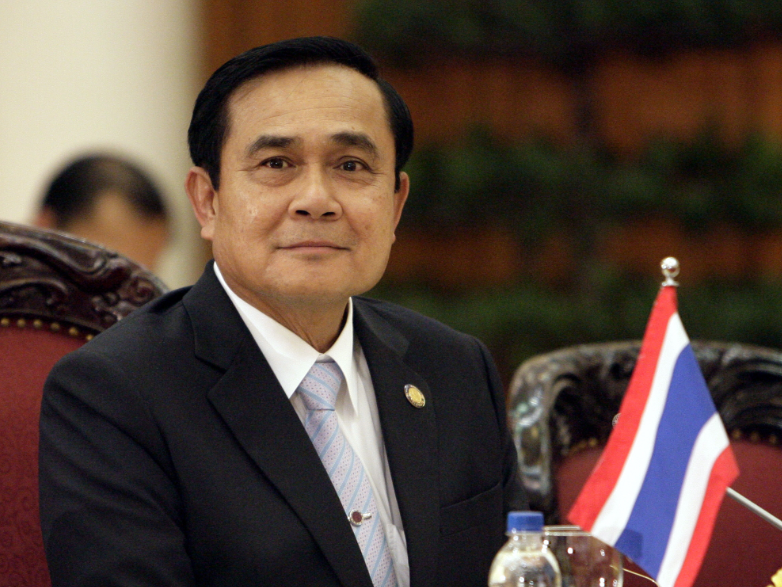
Thai Prime Minister Prayuth Chan-ocha. (Photo: AP)
Bangkok (People’s Daily) – Thai government officials, ministers from the United Nations Office on Drugs and Crime (UNODC) and high-ranking ASEAN members from the region and international community have convened in the Thai capital to discuss border security issues.
Delegates will review the latest information on organized crime and how ASEAN integration and infrastructure has been used for drug trafficking and discuss possible solutions to secure regional borders.
Synchronizing Trade and Security Plans in Support of ASEAN 2025 is a top priority for the year, and related border management strategies should be reached between Thailand and the UNODC in advance of the ASEAN Ministerial Meeting on Transnational Crime and the ASEAN Summit in November.
Thai Prime Minister Prayut Chan-o-cha emphasized the importance of the conference during his opening address and said, “Thailand and the region have experienced a very significant increase in drug trafficking and other forms of transnational crime in recent years, and we need to protect the ASEAN Community from those that would do it harm.”
Chan-o-cha also stressed that through a shared border management strategy, regional security can be achieved and recognized the importance of the UNODC and ASEAN strategic partnership.
Observers and analysts expect a border management consensus to emerge following the summit along with practical solutions for law enforcement and border control agencies.
Ministry of Foreign Affairs ASEAN Director General Suriya Chinawongse hosted a panel discussion that included Thai Deputy Prime Minister Prajin Juntong, UNODC Director of Operations Miwa Kato, and UNODC Regional Representative Jeremy Douglas where they discussed the latest issues on transnational organized crime and trafficking.
ASEAN is one of the world’s largest trading blocs. Countries in the region are investing heavily in trade facilitation initiatives and infrastructure to accommodate increasing cross-border flow of people, goods, and capital.
Meanwhile, ASEAN governments have raised concerns that the same investments have accelerated illicit trade activities and created more opportunities for cross-border criminal networks and organizations to do business, particularly in the region’s more vulnerable countries.
Douglas has advocated for a regional border management arrangement to protect against transnational crimes for several years and commented.
“Organized crime groups have effectively capitalized on policy and capacity disparities to grow the drug trade and other illicit businesses in Southeast Asia, and we believe a collective ASEAN border management strategy will help the region respond,” Douglas said.
Douglas urged the importance of addressing market demand for illicit commodities and called for improving border management to combat drug trafficking.


